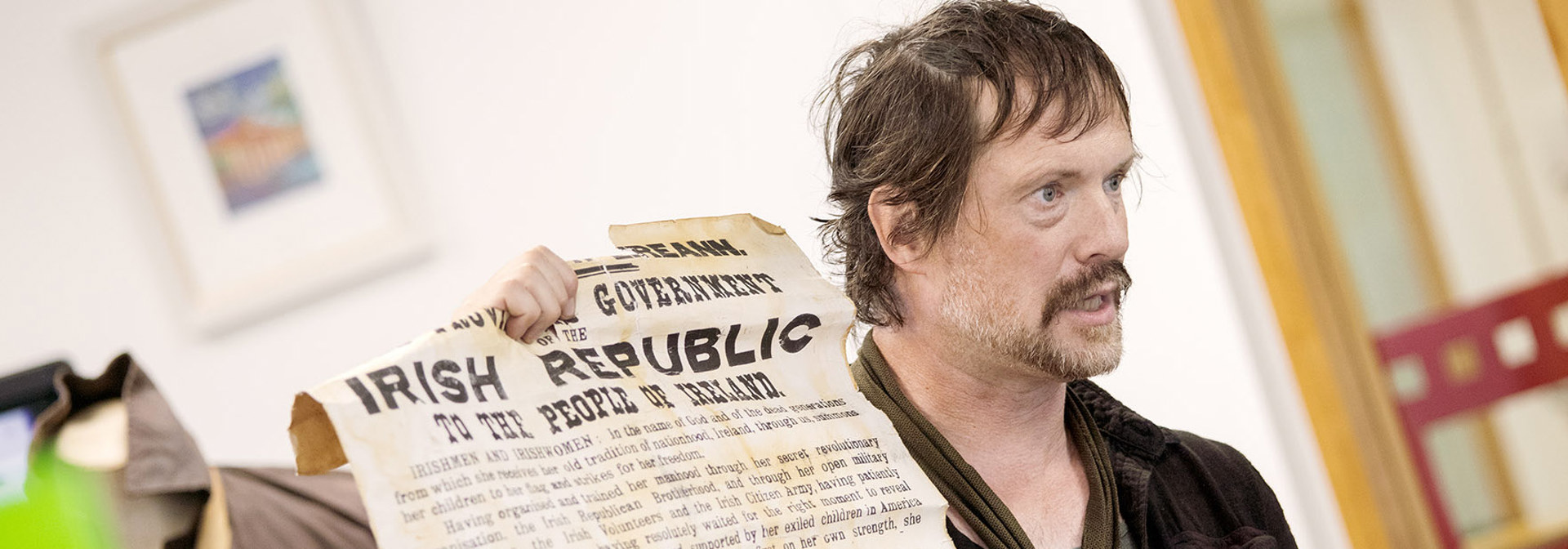
Publications
Publications
The Museum has produced a variety of publications which are available free of charge
There are hard copies of the following available from the Museum:
- From Conflict To Division: Donegal 1919-1925
- Uncover and Rediscover Donegal
- Your Donegal Family - A Guide to Genealogical Sources
- County Donegal 1916: From The Edge
Online Publications
Donegal County Museum in association with the County Archives Service created this publication on the history of the Workhouses of
County Donegal using the Workhouse records held in the Donegal Archives and various other sources. In this publication we explore the early years of the Donegal Workhouses and examine the final years of the Poor Law system.
The records of the Donegal Workhouses are a truly invaluable source for the study of the local, family and academic history of
Ireland, from the era of the Great Famine through to the foundation of the Irish Free State in 1922.
Read the 'Workhouse of County Donegal' Booklet here
Workhouses Of County Donegal Booklet Decade Of Centenaries
The Battle of Pettigo/Belleek, took place along the Donegal /Fermanagh Border in late May, early June 1922 in the period between the War of Independence and the Civil War. It was the last time that Pro and Anti Treaty Forces fought side-by-side against British forces. This was the only location in Ireland where Irish forces engaged with British forces in a stand-up fight with a defined battle line and the first time since the Easter Rising when heavy artillery was used in Ireland.
On Saturday 28th May 2022, working on a cross-border basis with Fermanagh County Museum, Donegal County Museum held a commemorative event in Pettigo and Belleek, which included talks by both national and local speakers, the premiere of a specially commissioned animation, part of the Bordering Realities Project, funded by the Creative Ireland Programme, a History Ireland Hedge School and a walking tour of the area. Speakers included Dr Éamon Phoenix, Dr Edward Burke, Dr Margaret O’Callaghan and local historians, Jimmy Baird, John Cunningham, and Pauline Gilmartin.
Please see the booklet created for the event here:
This commemorative event was funded under the Community Strand of the 2022 Decade of Centenaries programme by the Department of Tourism, Culture, Arts, Gaeltacht, Sport and Media.
For further information, contact Donegal County Museum, High Road, Letterkenny, Co Donegal T074 9124613 E museum@donegalcoco.ie
In December 2020, during the Covid 19 Pandemic, Donegal County Museum partnered with the Donegal Volunteer Centre to create the ‘UnCover & ReDiscover Your Locality’ community project. This community project encouraged project participants to share with us what they had they uncovered or rediscovered about their locality and their ancestors. The varied and eclectic submissions we received came from all over County Donegal, England and the USA and were complied into a booklet created and edited by Donegal County Museum. Copies of the booklet are available for free in Donegal County Museum and at the Donegal Volunteer Centre.
Funding for this booklet was provided by the Community Resilience Fund as part of the Healthy Ireland KEEP WELL campaign.
To discover more about the work of the Donegal Volunteer Centre visit
For information on Healthy Ireland initiatives see
For information on Healthy Donegal visit:
From Conflict To Division Donegal 1919 -1925
The period 1919-1925 is perhaps one of the most important in Irish history. The events that occurred transformed the island of Ireland and have had a lasting legacy on Irish politics and society up to the present day. This publication traces the events of this tumultuous period in our history and its impact on Donegal.
The booklet was written and edited by Caroline Carr and Judith McCarthy, Donegal County Museum, Culture Division, Donegal County Council. It was supported by the Department of Tourism, Culture, Arts, Gaeltacht, Sport and Media under the Decade of Centenaries 2012-2023 initiative and by Creative Ireland Programme 2017 -2022.
From Conflict to Division: Donegal 1919-1925
